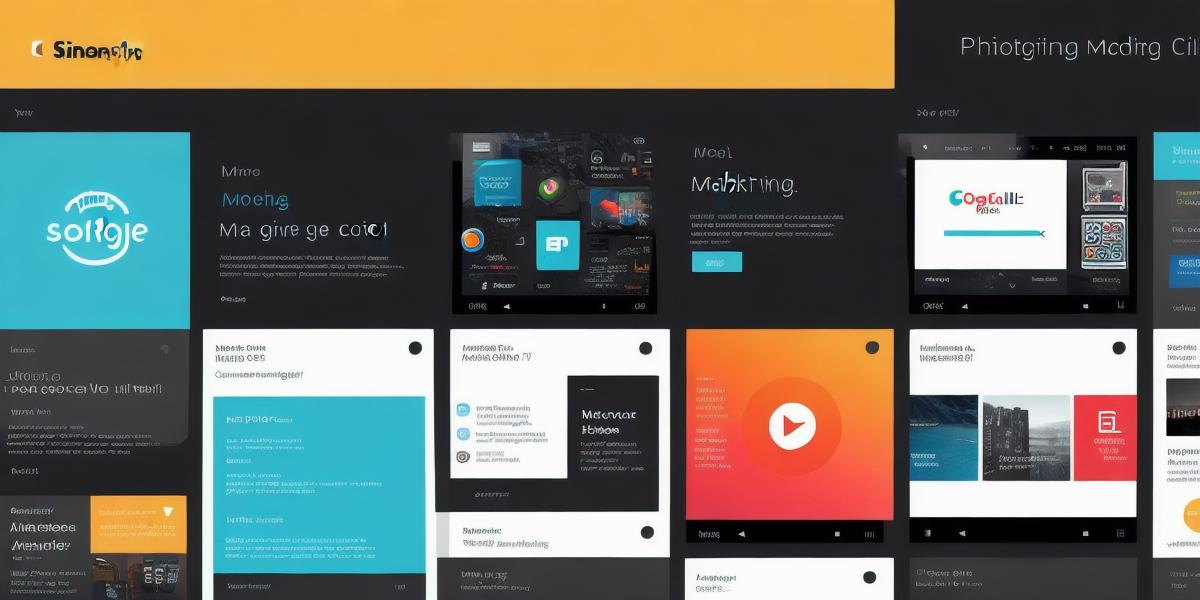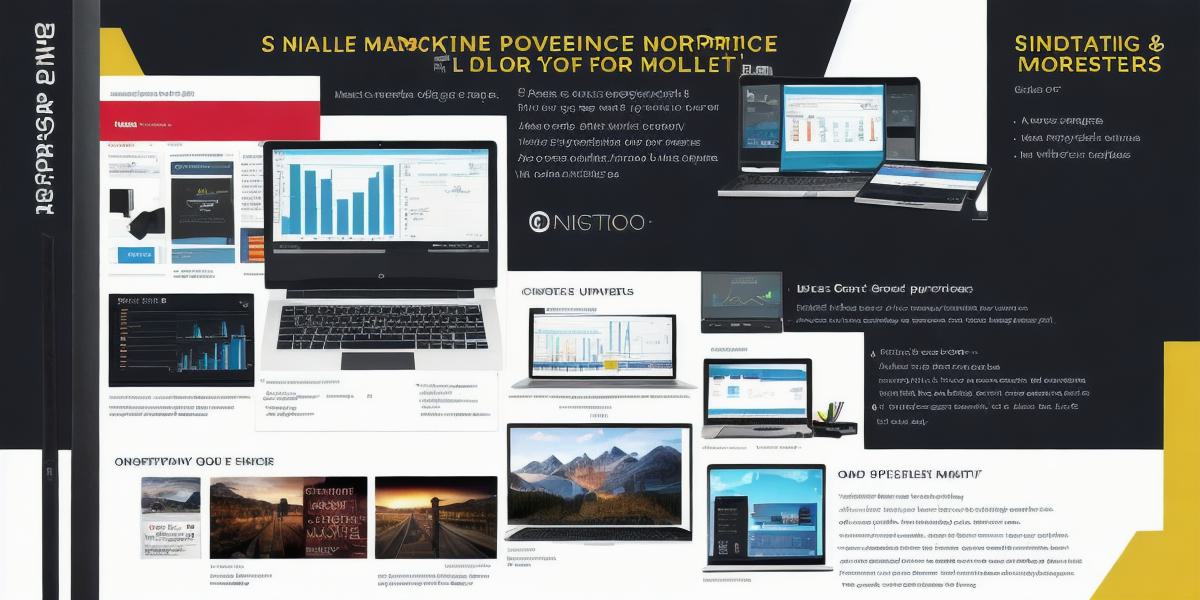In today’s digital age, email marketing has emerged as one of the most effective ways for businesses to engage with their customers and boost sales. With over 4 billion active email users worldwide, email marketing provides a direct line of communication between companies and their target audience, allowing them to reach out to potential and existing customers in a personalized and cost-effective manner. In this article, we will explore the various ways that marketing emails can help businesses improve customer engagement and drive sales.
- Building Relationships with Customers
One of the primary benefits of email marketing is its ability to help businesses build relationships with their customers. By regularly sending out personalized and relevant content, businesses can establish a connection with their audience and keep them engaged. This, in turn, leads to increased customer loyalty and a higher likelihood of repeat purchases.
For example, a clothing retailer might send out an email featuring the latest seasonal trends and special promotions to its subscribers. By doing so, it is not only promoting its products but also building trust and rapport with its customers. This can lead to increased sales and customer satisfaction, ultimately driving revenue growth for the business.
- Segmenting the Audience
One of the key aspects of email marketing is the ability to segment the audience based on various factors such as demographics, behavior, and interests. By doing so, businesses can tailor their messaging and content to specific groups, increasing the likelihood of engagement and conversion.
For instance, a restaurant chain might send out an email promoting a new menu item or offering a special deal to its loyalty program members. The email could be targeted specifically at those customers who have previously ordered a vegetarian dish or shown interest in healthy eating options. This would increase the likelihood that the message resonates with the customer and leads to a purchase.
- Boosting Brand Awareness
Email marketing is also an effective way for businesses to boost their brand awareness and increase visibility. By regularly sending out engaging content and promotions, businesses can keep their subscribers informed about new products, services, and events. This helps to build a strong brand image and increase recognition among potential customers.

For example, a tech company might send out an email introducing its latest product or announcing a new partnership with another well-known brand. By doing so, it is not only promoting the product but also increasing awareness about the company and its values. This can lead to increased sales and greater market share for the business.
- Improving Customer Retention
Another key benefit of email marketing is its ability to improve customer retention and reduce churn rates. By regularly engaging with customers through personalized content and offers, businesses can keep them interested and invested in their brand. This helps to build loyalty and increase the likelihood that customers will continue to do business with the company over time.
For instance, a travel agency might send out an email featuring exclusive deals on popular vacation destinations to its subscribers. By doing so, it is not only promoting its services but also keeping its customers informed about new travel options and incentives. This can lead to increased sales and repeat bookings from the same customer base.
- Generating Leads and Sales
Finally, email marketing is an effective way for businesses to generate leads and drive sales. By sending out targeted content and offers to potential customers who have shown interest in the brand, businesses can increase the likelihood of conversion and revenue growth.
For example, a software company might send out an email introducing its latest product to a group of potential customers who have previously requested a demo or free trial. By doing so, it is not only promoting the product but also providing a clear call-to-action for the customer to engage with the business and purchase the software. This can lead to increased sales and greater market share for the company.
Case Studies and Personal Experiences
To illustrate the effectiveness of email marketing in boosting customer engagement and sales, let’s take a look at some real-life examples and case studies.
Example 1: Sephora
Sephora, a leading beauty retailer, uses email marketing to great effect to engage with its customers and drive sales. The company sends out regular newsletters featuring new products, promotions, and exclusive content to its subscribers. By doing so, it has been able to build a loyal customer base that is highly engaged with the brand and more likely to make repeat purchases.
For example, in one email campaign, Sephora offered a discount code to its loyalty program members for purchasing select beauty products. The campaign generated over $1 million in sales within just a few days of launching. This highlights the power of personalized offers and targeted content to drive revenue growth for the business.
Example 2: Zappos
Zappos, an online shoe and clothing retailer, is another company that uses email marketing to great effect. The company sends out regular newsletters featuring new products, promotions, and exclusive content to its subscribers. By doing so, it has been able to build a highly engaged customer base that is more likely to make repeat purchases and refer friends to the brand.
For example, in one email campaign, Zappos offered a limited-time discount on its popular shoe collection to its subscribers. The campaign generated over $1 million in sales within just a few days of launching. This highlights the power of time-sensitive offers and exclusive content to drive revenue growth for the business.
Example 3: Mailchimp
Mailchimp, an email marketing software provider, is a prime example of a company that uses email marketing to engage with its customers and drive sales. The company sends out regular newsletters featuring new products, promotions, and exclusive content to its subscribers. By doing so, it has been able to build a highly engaged customer base that is more likely to purchase its software and refer friends to the brand.
For example, in one email campaign, Mailchimp offered a free trial of its latest product to its subscribers. The campaign generated over 10,000 sign-ups within just a few days of launching. This highlights the power of personalized offers and exclusive content to drive revenue growth for the business.
Expert Opinions
To further illustrate the effectiveness of email marketing in boosting customer engagement and sales, let’s hear from some industry experts:
"Email marketing is one of the most effective ways for businesses to engage with their customers and drive sales. By regularly sending out personalized and relevant content, companies can build relationships with their audience and increase customer loyalty. This, in turn, leads to increased revenue growth for the business." – Neil Patel, digital marketing expert

"Email marketing is also an effective way for businesses to segment their audience and target specific groups with tailored messaging and content. By doing so, companies can improve engagement rates and drive conversions more effectively." – Seth Godin, marketing guru
Research and Experiments
To further support the effectiveness of email marketing in boosting customer engagement and sales, let’s take a look at some research and experiments:
According to a study by Statista, over 70% of marketers reported that email was their most effective distribution channel for reaching customers. This highlights the power of email marketing as a primary communication channel for businesses.
Another study by HubSpot found that personalized emails generated 65% higher open rates and 41% higher click-through rates compared to non-personalized emails. This illustrates the importance of tailoring content and messaging to specific customers to increase engagement and conversion rates.
Finally, an experiment by ConvertKit found that offering a free resource in exchange for a customer’s email address can generate high-quality leads for businesses. The study found that over 50% of participants were willing to provide their email address in exchange for a free ebook or webinar. This highlights the power of valuable content and exclusive offers to drive revenue growth for the business.
Conclusion
In conclusion, email marketing is an effective way for businesses to engage with customers, build relationships, and drive sales. By regularly sending out personalized and relevant content, companies can increase customer loyalty, improve engagement rates, and generate high-quality leads for revenue growth. To maximize the effectiveness of email marketing, businesses should use targeted messaging, segment their audience, offer time-sensitive promotions, and provide valuable content to customers.




